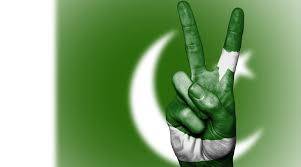
In the ever-evolving landscape of democracy and governance, Pakistan's journey has been a subject of debate, with varying perspectives on its democratic performance. With a history marked by periods of military rule, allegations of electoral irregularities, and persistent issues in infrastructure development and poverty reduction, Pakistan's democratic evolution is a complex and dynamic process. For some observers, these challenges have raised concerns about the strength of Pakistan's democracy, and they demand our immediate attention and action. Elections, as a cornerstone of democracy, play a vital role in ensuring genuine representation and accountability within a nation.
However, Pakistan has faced recurrent challenges, particularly in dealing with allegations of irregularities and the pervasive influence of political elites in its electoral processes. For a democracy to flourish, it relies heavily on the ability to empower representatives who authentically reflect the diverse aspirations of the populace. This, in turn, necessitates conducting elections that are transparent and fair, ones that accurately mirror the collective will of the electorate.
Regrettably, transparency in governance has been a persistent challenge in Pakistan, with the specter of corruption casting a long and dark shadow over the nation's democratic ambitions.
Notably, Transparency International's Corruption Perceptions Index consistently ranks Pakistan among the countries struggling with high levels of corruption. This ranking underscores the urgent need for an unwavering commitment to transparency and accountability at all levels of governance.
The complex interplay between military involvement in politics and the assertion of civilian authority has been a recurring theme in Pakistan's history. Periods of military rule have disrupted democratic processes, and transitioning back to civilian rule has often proven challenging.
The underlying issue lies in the imbalance within civil-military relations, primarily due to the presence of incompetent civil leadership and weak political parties. This imbalance has hindered the development of a robust democracy, a strong party framework, and the maintenance of the rule of law.
Regrettably, the military's deepening involvement in the political sphere, often referred to as a "predatory cycle," has transformed it into a dominant economic class with significant influence over various aspects of civilian life.
This situation has given rise to a symbiotic relationship between civilian politicians and military figures, with politicians and other members of the ruling elite supporting the military for their personal interests.
This relationship has been sustained by a national narrative crafted by the military, aided by sections of the media and select civil society partners, consolidating military hegemony over Pakistani society, politics, and the economy. This dynamic, where the military steps in as the custodian of national sovereignty, is both ironic and indicative of the elusive nature of a truly democratic state in Pakistan.
Despite these challenges, Pakistan's diversity, encompassing various religious and ethnic dimensions, presents an opportunity to propel the nation forward. However, this diversity demands astute management to ensure harmony and protect minority rights. Inclusivity should be the guiding principle, fostering an environment where diverse ideologies coexist peacefully. Religious and ethnic tensions have occasionally flared up, underscoring the challenges inherent in managing diversity. Protecting minority rights and promoting inclusivity should remain ongoing priorities.
Economic challenges have also left their mark on Pakistan's democratic journey. Persistent issues in infrastructure development, job creation, and poverty reduction have been noted. Unemployment rates fluctuate, indicating the need for sustained efforts in job creation. Additionally, regulatory hurdles, as highlighted by the World Bank's Ease of Doing Business Index, have impacted the investment climate in Pakistan. Streamlining regulations and reducing bureaucratic obstacles can play a pivotal role in creating a more conducive environment for investment and economic growth.
While democracy is central to progress, its impact on human development indicators is equally critical. Pakistan's performance in indicators such as education and healthcare reflect the challenge of ensuring equitable access to these essential services. It underscores the imperative of aligning democratic progress with improvements in the quality of life for all citizens.
In conclusion, Pakistan's democratic journey is a testament to the complexities and opportunities faced by democracies worldwide. The challenges and triumphs we have discussed are part of the nation's ongoing quest for a stronger and more prosperous democracy. As we continue to observe Pakistan's democratic evolution, we are reminded that democracy is not a static destination but a dynamic process, requiring collective efforts from the people, their representatives, and institutions, all working toward a common goal — a better future.

